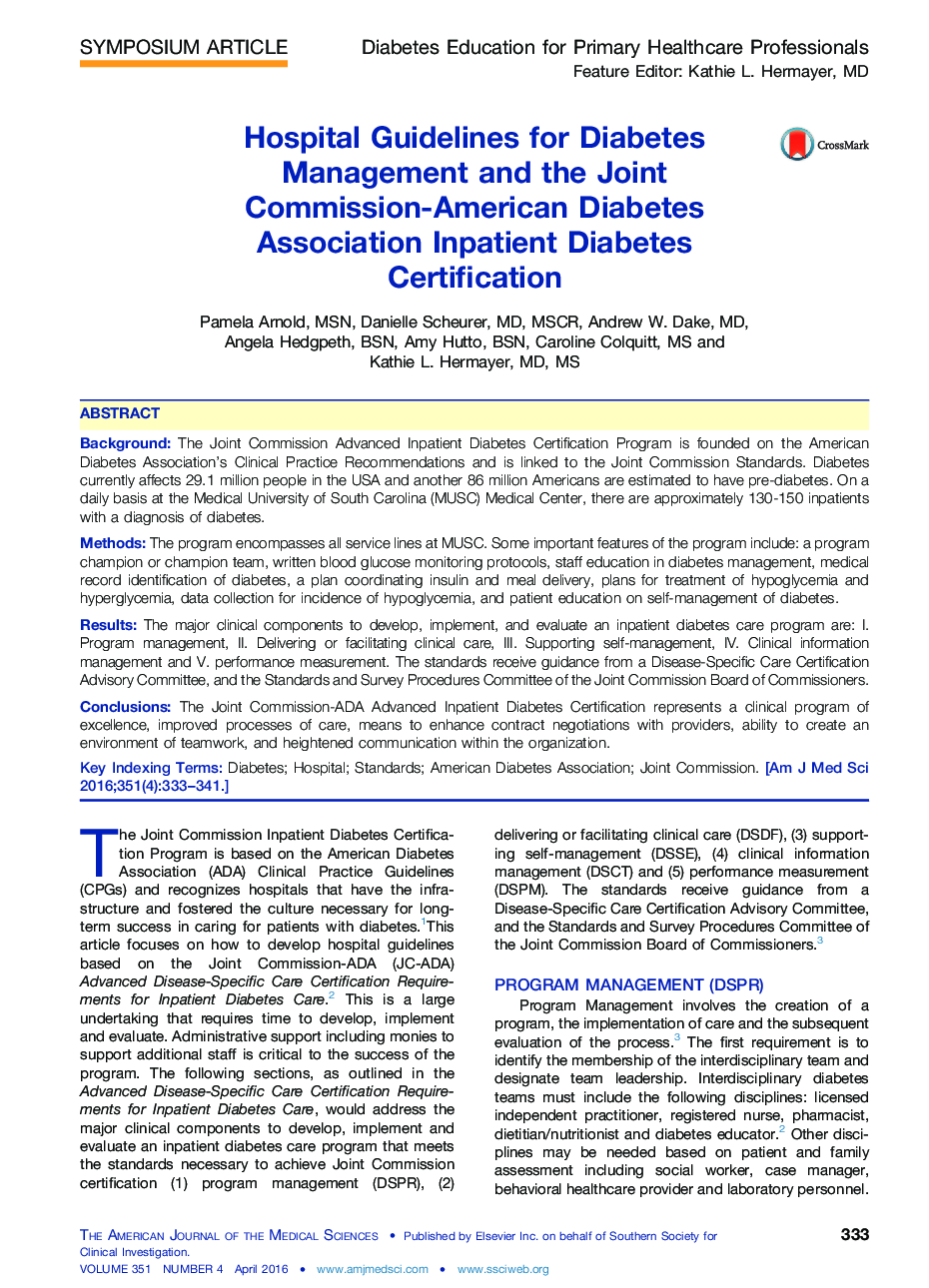| Article ID | Journal | Published Year | Pages | File Type |
|---|---|---|---|---|
| 2863206 | The American Journal of the Medical Sciences | 2016 | 9 Pages |
BackgroundThe Joint Commission Advanced Inpatient Diabetes Certification Program is founded on the American Diabetes Association’s Clinical Practice Recommendations and is linked to the Joint Commission Standards. Diabetes currently affects 29.1 million people in the USA and another 86 million Americans are estimated to have pre-diabetes. On a daily basis at the Medical University of South Carolina (MUSC) Medical Center, there are approximately 130-150 inpatients with a diagnosis of diabetes.MethodsThe program encompasses all service lines at MUSC. Some important features of the program include: a program champion or champion team, written blood glucose monitoring protocols, staff education in diabetes management, medical record identification of diabetes, a plan coordinating insulin and meal delivery, plans for treatment of hypoglycemia and hyperglycemia, data collection for incidence of hypoglycemia, and patient education on self-management of diabetes.ResultsThe major clinical components to develop, implement, and evaluate an inpatient diabetes care program are: I. Program management, II. Delivering or facilitating clinical care, III. Supporting self-management, IV. Clinical information management and V. performance measurement. The standards receive guidance from a Disease-Specific Care Certification Advisory Committee, and the Standards and Survey Procedures Committee of the Joint Commission Board of Commissioners.ConclusionsThe Joint Commission-ADA Advanced Inpatient Diabetes Certification represents a clinical program of excellence, improved processes of care, means to enhance contract negotiations with providers, ability to create an environment of teamwork, and heightened communication within the organization.
